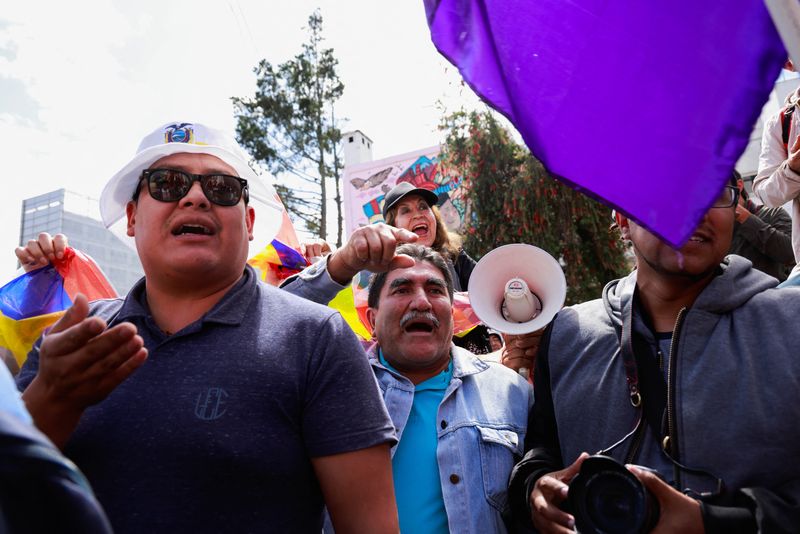3/3

© Reuters. Demonstrators take part in a protest in support of the proposed law to raise VAT in the surroundings of the National Assembly, in Quito, Ecuador February 6, 2024. REUTERS/Karen Toro
2/3
QUITO (Reuters) -Ecuadorean President Daniel Noboa on Tuesday acted to force lawmakers to vote again on a measure to hike the value added tax to finance a security offensive against criminal gangs, after lawmakers earlier in the day voted it down.
Lawmakers defeated the measure to raise the VAT to 15% from 12% until 2026, and then to set it at 13% from that year onward by a vote of 83 to 43, with nine abstentions.
Lawmakers did approve a one-time measure to tax banks’ profits from 2023 at between 5% and 25%. Banks in Ecuador currently do not pay taxes on their profits.
The government expected the proposed hike in the VAT to 15% to raise some $1.1 billion per year, according to the bill.
The one-off tax on bank profits is forecast to raise $145.9 million.
Noboa’s new effort on raising the VAT, a measure called a partial objection, will be to hike the VAT to 13% permanently. He will also propose that lawmakers could authorize the president to hike the VAT to 15% “based on the conditions of public finances and the balance of payments,” according to a statement from Ecuador’s presidency.
Legislators will vote on Noboa’s partial objection.
Ecuador, long a haven for foreign retirees, has been gripped by spiraling violence since the coronavirus pandemic battered the South American country’s economy.
Armed men stormed a TV-station on air last month and a presidential candidate was gunned down as he left a rally during last year’s elections, while hundreds of inmates have been killed in prison riots.
Increased crime has prompted some fearful civilians to learn how to use handguns for self protection and demand authorities do more to restore law and order.
The vote marks a legislative setback for Noboa, who previously received backing from lawmakers on an electricity bill meant to increase generation and attract foreign investment and a separate tax bill which incentivizes youth employment.
Source: Investing.com


























